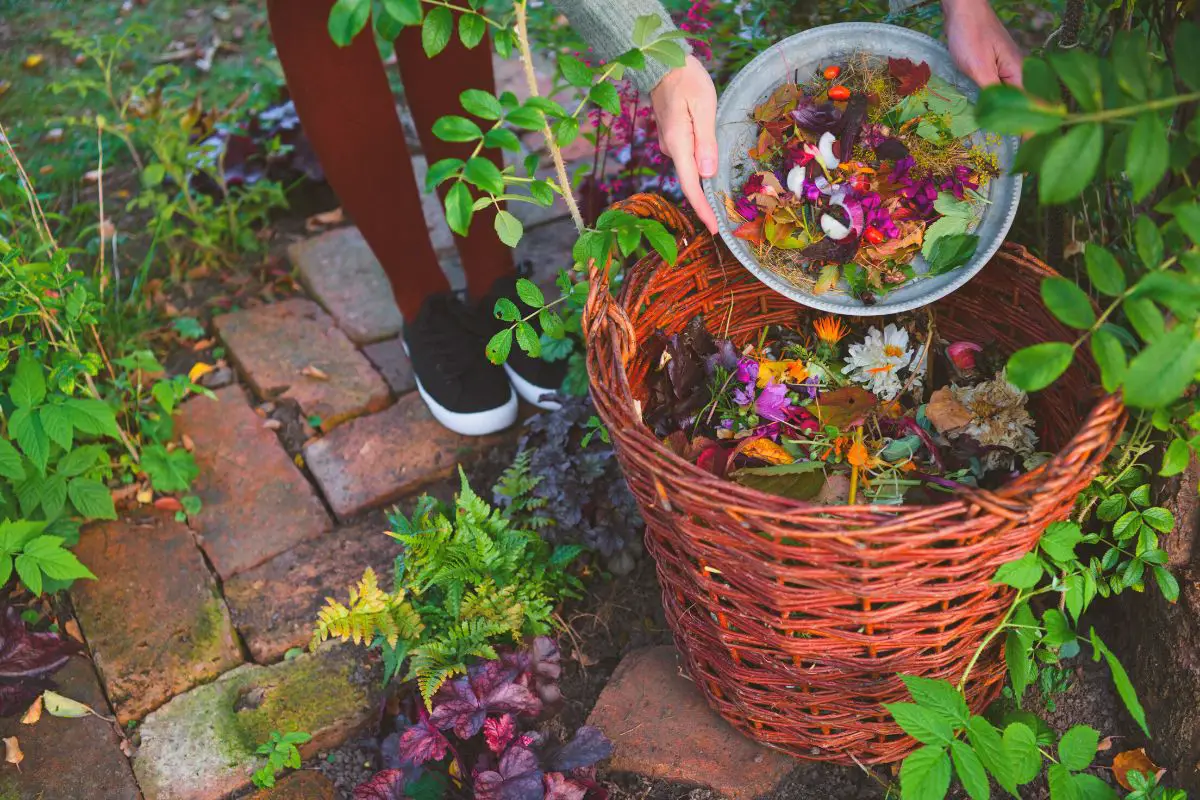Why Is Composting Good for the Environment | Not only good, it’s great!
With each passing year global warming is raising the earth’s temperature leading to a greater push for environmentally friendly lifestyle choices. Though composting is a method we have used for thousands of years, it still remains a vital cog in dealing with waste in an efficient and greener way.
33% of all of the food produced in the world, unfortunately, goes to waste! What makes it worse is that when this wasted food rots it becomes a source of methane, a damaging greenhouse gas which is 25 times stronger than carbon dioxide!
The beauty of composting is that it not only fights against climate change, it also works to improve the quality of the soil we use to grow our food.
Related Articles: Bokashi vs Composting and Best Compost Method
How Does Composting Work?
In order for you to compost successfully you need to achieve the right balance of carbon and nitrogen, with approximately twice the amount of carbon needed for nitrogen.
The key ingredients you need are leftover food scraps, which are high in nitrogen, and wood-like material such as raked leaves, grass, twigs etc. In addition to these, a compost pile also needs water, air and shelter.
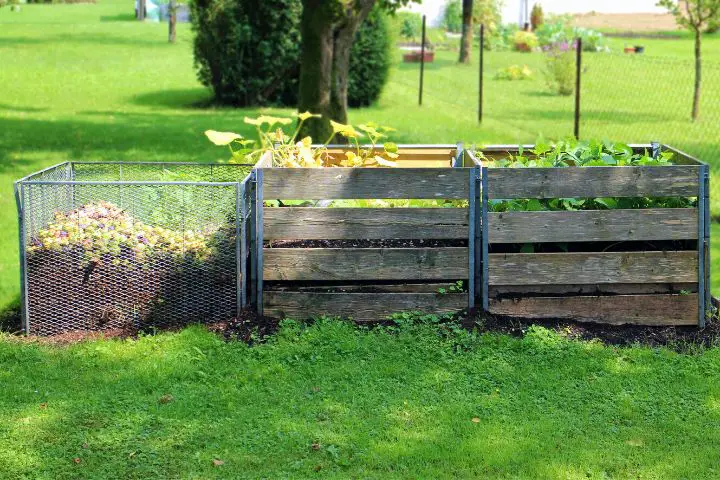
Without getting too scientific, microorganisms do the job of breaking down your waste and turning it into usable, organic fertilizer. Microbes such as bacteria, protozoa and fungi all go to work on your waste and, just like you would a plant or a tree, you simply give it the conditions it needs at the right time to get your desired result.
Having created your pile, with the right ratio of carbon and nitrogen, it’s super important to keep your pile damp. In order for microbes to thrive they need to be kept in moist conditions. However, there is a real concern of overdoing it; you can drown the compost pile in water, which will just turn it into slush and ruin all progress.
A trick which speeds up the process of breaking down the food is known as stirring the pile. Moving the pile around with a big staff allows for oxygen to reach all areas, as the combination of oxygen and moisture guarantees the survival of the microorganisms.
What Should You Put in Your Compost?
So maybe you’re a little forgetful and often find food in the fridge which you forgot about and now it’s mushy or wilter or has a bit of mould growing on it! Throwing it into a compost bin will definitely make you feel better, as you know it’s not going to be a complete waste. However, there are certain things which are excellent to compost, and other foods which you should definitely avoid.
A good general rule of thumb is: if it comes from the ground, it can go back into the ground.
So here is a list of everyday foods which are beneficial for your compost:
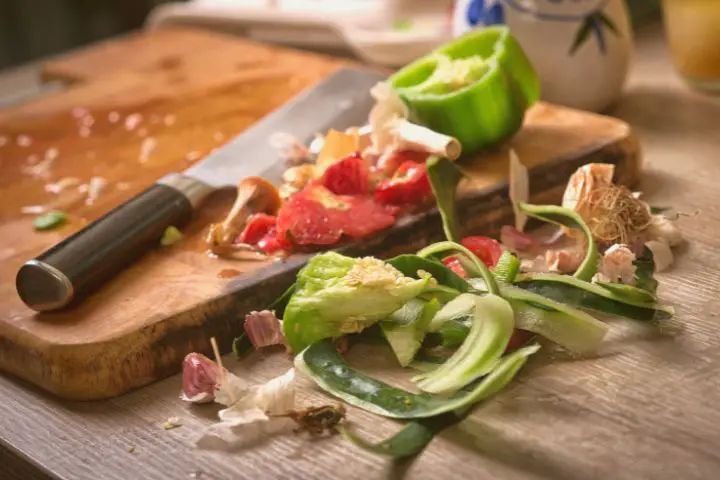
- Vegetables – regardless of what form they’re in, whether cooked, raw or completely rotten, are excellent for the quality of your compost. They decompose really quickly and enrich the soil greatly.
- Fruits – Like vegetables, fruits start off from the soil, so going back into it is a natural completion. Most fruits break down quite quickly, however, some fruits with large seeds such as peaches and avocados can take longer so removing the pit is recommended.
- Coffee granules – if you grind fresh coffee every morning as most of us do, and use biodegradable filter papers, then you can put both the grounds and the filter paper into your compost pile. Once decomposed, the coffee will add nitrogen into the mix, so it’s important to keep that in mind to ensure the ratios remain at their desired level.
- Eggshells – with eggs having so many benefits to our health, it should come as no surprise that their shells are equally as good for composting. Containing a number of essential minerals and nutrients, like calcium, for example, eggshells are excellent for plant growth. A top tip is to crush the shells beforehand as they break down quicker that way.
- Tea – if you’re not a coffee person, and your hot drink is tea, then not to worry. Tea is extremely beneficial when it comes to boosting your compost quality. Before you start throwing your tea bags into your compost bin, however, just make sure that the tea bags are biodegradable so they break down without any issue. Tea leaves are densely packed with minerals and nutrients such as nitrogen, potassium and phosphorus which help in maintaining oxygen moisture and boost oxygen, increasing the speed of decomposition.
What Foods Should You Avoid Putting in Your Compost?
As important as it is to know what will boost the quality and speed of your compost, it’s equally as important to know what foods and waste should never go near your compost pile:
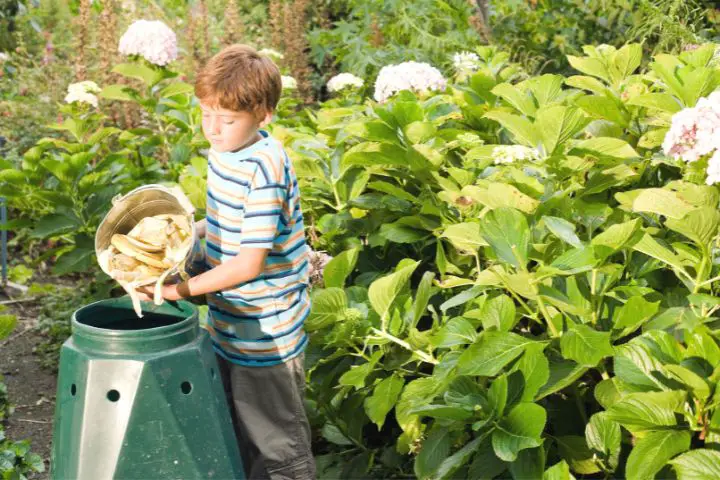
- Oils and grease; an essential part of composting requires certain levels of moisture and oils and grease can greatly affect that. The smell of grease can also attract pests and rodents.
- Acidic foods; food products which have a high level of acid, such as citrus fruits, pickled products and tomatoes can be harmful to your compost pile as high acidity can destroy the good bacteria needed to help break down the compost pile.
- Meat; as much as you love your steaks, so do wild animals. You can be sure that if your leftover steak goes into your compost pile, some animal is going to find it and ruin your compost.
- Dairy products; we have all forgotten about milk, cream or yogurt in the fridge and then been reminded by the rancid smell. Add that to your compost pile and it will create serious odour issues and also attract rodents and pests.
- Human and pet waste; yes both are organic and biodegradable, however, they will create a terrible smell and can also pose significant health risks.
- Weeds; an essential part of building an effective compost pile is all the organic material from your garden, such as leaves, twigs, plants etc. so it’s very easy to throw your weeds in there as well. You have to be very careful not to let that happen, however, as they could root and start to grow, decreasing the quality of your compost pile greatly.
However, if you choose Bokashi composting, most of these elements will be fine as the microorganisms present in Bokashi will break this type of food down before they get to your soil.
5 Benefits of Compositing
There are a number of benefits of starting a compost pile at home, but we must ask ourselves, why is composting good for the environment? Here we will look at the top 5 reasons;
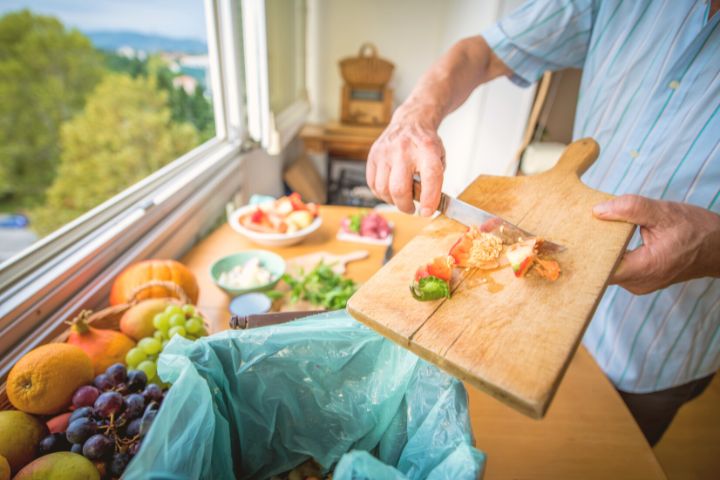
- Helps to enrich the quality of soil, which in turn reduces the need for chemical fertilizers, which have a number of environmental side effects.
- Reduces waste by a considerable amount. The EPA reports that 30% of all waste comes from food scraps and yard waste, the two ideal ingredients for a compost pile. Instead of rotting away in landfills, we can recycle them and put them back into the ground.
- Helps fight against climate change as it reduces the amount of carbon dioxide levels and methane levels, two environmentally harmful greenhouse gases.
- Saves money! Some of the taxes you pay go towards opening and operating landfills. If we can reduce landfill usage by a third, then our taxes should reduce.
- Improves the quality of your food! As composting improves the quality of soil your food is grown in, this improves the quality of the food being produced.
FAQ’s
Do I Need to Get a Bin to Make Compost?
It’s not entirely necessary to use a bin to make compost, as the method of composting itself is based off of the volume of material being used. This could mean however much is taken from organic waste from the kitchen, yard and more.
What are Common Methods of Composting?
The current forms of composting are; bacteria or EMO composting, vermicomposting or worm farm posting and combination composting – also called compot composting. The final method of commercial composting, which is also known as industrial composting, is done in vast quantities.
Can I Compost Without Turning the Heap?
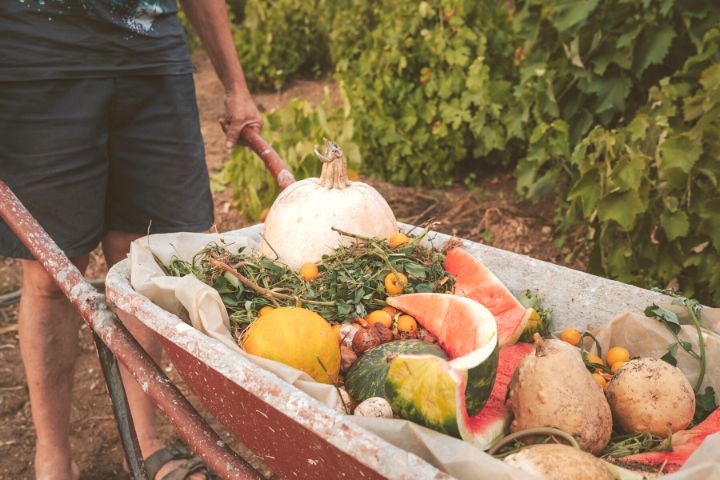
You can indeed compost without turning a massive heap, which is usually attempted by commercial composters. Sheet composting (also referred to as lasagna gardening, if you can believe it) is a method used to turn an area of a backyard into a vegetable patch, by layering organic materials atop soil. This can help retain moisture, reduce weeds and make the use of fertilizers less crucial.
How Can You Tell When Compost is Finished?
Finished compost doesn’t heat up, and the mulch does not look much like the organic materials that were initially mixed. An earthy smell and substance akin to organic soil are what is left behind.
Can Composting Hurt Plants?
Composting is always a good idea for your backyard! It can help keep moisture in the soil, retain its structure and increase growth through a slow release of nutrients for plants. However, if not matured properly, the compost can work against your plants by trying to get more soil nitrogen and can cause chemical burns to new seedlings.

